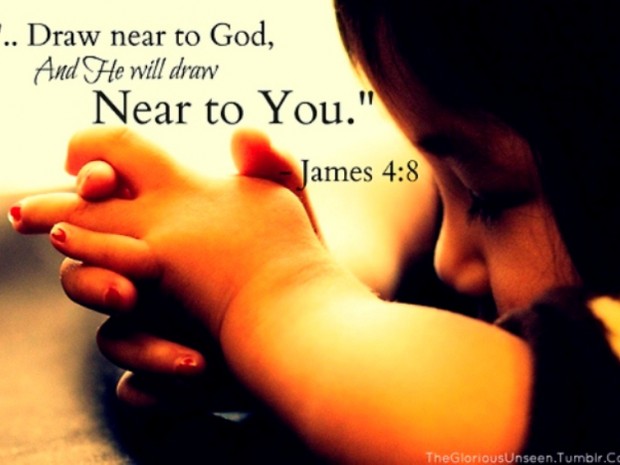
We need to understand that our God is a God of covenants. And there are two types of love of God – one is the common love and the other is the covenantal love.
Common love is an unconditional love given freely to all people, regardless of their responses.
We can see the definition of this common love in Matthew 5, where Jesus said, “Love your enemies and pray for those who persecute you, so that you may be sons of your Father who is in Heaven.” In this verse, we are called to love our enemies, following the nature of our Father.
Every person who loves, knows this common love of God. 1 John 4:8 says, “The one who does not love does not know God, for God is love.” In other words, anyone on earth can feel and receive this love whether they love or know God.

This article is written as a reflectional piece based on the sharing of Reverend Lieow Meng Kuang on how we can attain victory in our spiritual encounter with God at Prescott Hotel Klang on 16th to 18th of July 2015. He started the session by explaining how we can enter a covenantal love with God.
Covenantal love, on the other hand, can be conditional and unconditional, initiated and given by God. An example of unconditional covenantal love is when God made a covenantal love with Noah that He will never destroy all living things with flood again. (Gen 9:11) In other words, without any conditions on us, God will hold His promise. However, an example of conditional covenantal love (or basically a covenantal love with conditions) is that Noah and his descendents would have to answer for every flesh of blood they consume and every human they murder, as God requires life for life due to the sanctity of a human life. (Gen 9:4-6)
Now, the question is how can love and covenant come together? Should not all love come without requirements? Yes, that love has already been defined, which is common love.
But covenantal love is different from common love. Common love only involves one party, God loving us. Covenantal love involves two parties — God loving us first and us loving God back. It is a two-sided, active, dynamic, and ongoing love relationship between us and God. In the covenantal love, we become God’s son and daughter, and we get to personally know God as our Father in Heaven.

The greatest example of a covenantal love is the covenantal love established by Jesus Christ. According to the Word of God, this covenant is established when we believe that Jesus Christ is the Son of God and He died for our sins on the cross, rose on the third day, and is now seated at the right hand of the throne of God. Believing this is the condition to enter this covenantal relationship with God. In this covenantal relationship, God becomes our Father in Heaven, and we become His son and daughter, through Christ.
“For God did not send his Son into the world to condemn the world, but to save the world through Whoever believes in him is not condemned, but whoever does not believe stands condemned already because they have not believed in the name of God’s one and only Son.” (John 3:17-18)
In fact, this covenantal love has been formed since the beginning. When God created Adam and Eve, he intended to have covenantal love and common love with us.
Adam and Eve knew God’s common love, meaning they experienced and felt love. But when Adam sinned, the covenantal love with God is broken. (Gen 2:6-17) Thus, they lost a relationship with God or they are separated from Him because of sin. Because they broke the covenant, they suffered a spiritual death, followed by a physical death. (Gen 2:17)
Hence, as descendents of Adam and Eve, we too “by nature” are “children of wrath” in the eyes of God, “indulging the desires of the flesh and the mind” (Eph 2:1-3). All of us are spiritually dead and separated from God, untill Jesus Christ reconciled us with Him. Jesus said, “I am the way and the truth and the life. No one comes to the the Father except through me.” (John 14:6)

However, although the covenantal love with God is broken, God’s common love remains. This explains why we can still experience and feel love without knowing or believing in God, while we are here on earth.
On a side note, another question that might emerge is why did God give Adam and Eve the ability to sin, by planting the tree of knowledge of good and evil? Would it not be more loving if God made Adam and Eve immune and incapable in deciding to sin?
First of all, Adam and Eve are made in the image of God. (Gen 1:27) And a key character of God is that He is love. (1 John 4:8) For love to happen, it must exist only in free-will. In other words, love has to come from the ability to decide or the ability to make a choice. It cannot be forced or programmed. Hence, to allow the operation of free will, God must plant the tree of knowledge of good and evil. This is because love can only happen in free will.

But even though Adam and Eve broke the covenantal love with God, God has never stopped reaching out to us since then.
After Adam and Eve, we see God reaching out to Noah with His covenantal love. And because Noah had done all that God had commanded him, God made a covenantal love with Noah. Firstly, God blessed Noah to multiply and subdue all animals, consuming them as food. Secondly, Noah was commanded not to eat flesh with blood and to require life for life for a man. The covenant made with Noah is effectively carried out to the rest of mankind because all of us are actually descendents of Noah. (Gen 6:18)
Even until today, we see the effects of Noah’s covenant with God. The world had been multiplying and humans had always been stronger than animals, subduing them and consuming them as food. Capital punishment for murder had been practiced by governments since the early ages (though some are not practicing them now). And the apostles in the New Testament commanded the Christian Gentiles to abstain from flesh of blood. (Acts 15:28-29)
Let us look also at other covenantal love God made after Noah. Who can forget the great covenant God made with Abraham? God promised Abraham that He will make him a great nation and give his descendents the promised land. (Gen 12:1-3; Gen 15) Sealed by blood (Gen 15:9), we can see how this love covenant is carried by faith and not by strength – from Abraham to his son Isaac, to Jacob, and to the 12 tribes that made the people of Israel. In fact, this covenantal love foreshadows the kind of covenantal love that we would have with God, through Jesus Christ.

And when the people of Israel has multiplied to become a Jewish nation, God made a covenantal love with them through Moses. He gave them the Law and the Ten Commandments. (Exo 20:1-17) Following the commandments would promise a multitude of blessings, and disobeying them would result in disciplining from God, even to the point of God being silent.
Here, we may ask how can God be loving when his covenant included discipline for not obeying them? Firstly, like a loving father, love is not marked by giving all that his children want, but giving them all they need.
Instead of seeing discipline as a punishment, it is necessary for the child to grow up to his or her greatest good. For example, if our children were to study for their exam, we as parents would reward or encourage them. But if they were lazy, we as parents would limit their video game time or withdraw privileges. While our children would see our discipline as unloving, we know that this action is best for them.
Hence, in a relationship of a Father and child, basically a covenantal love, discipline is necessary to make us more like Him, which is being the best person God has intended us to be.

Also, it is interesting to see how personal God is when He makes a covenantal love with His People. Every time when He makes a covenant in the Bible, God will address Himself with a personal name such as LORD God, GOD, the Lord, the LORD, the Lord of hosts, and also other specific names that described His character such as Elohim, El Shaddai, Adonai, Jehovah Jireh, Jehovah Shalom, etc. Throughout the Bible, we see God wanting us to know Him, through a covenantal love.
Yet, before Jesus Christ came, only the Israelites can establish an individual covenantal love with God. For example, David, an Israelite, made a covenantal love with God. In this covenant, God promised to establish his throne forever and to bless his son with an unending love, when David wanted to build God a temple on earth. (1 Sam 7:1-16)
As for Nebuchadnezzar and Cyrus, who were both Gentiles, although they personally knew God – Nebuchadnezzar making a great confession of God (Dan 3:28-29) and Cyrus being called as the shepherd (Isa 44:28) – neither knew God the way the Israelites did. The Old Testament points out that Gentiles cannot establish this covenantal relationship with God.
Only when Jesus Christ came, this covenantal love is opened to the Gentiles as well. We may wonder if God have loved the Gentiles (basically the non-Jews who believe in Christ). But although God revealed Himself to the Israelites first, God has already purposed to establish a covenantal love with us as the Gentiles since the days of the Old Testament.
Citing the prophet Hosea, apostle Paul said of God’s Word, “I (meaning God speaking here) will plant her for myself in the land; I will show my love to the one I called ‘Not my loved one.’ I will say to those called ‘Not my people,’ ‘You are my people’; and they will say, ‘You are my God’” and “In the very place where it was said to them, ‘You are not my people,’ there they will be called ‘children of the Living God.’” (Rom 9:25-26).

Before Christ came, only the Israelites were called “loved one,” “His people,” and “children of the Living God.” Yet, in the passage above, Hosea prophesied how the Gentiles will be shown love and called His people and children of God. We might think God is unfair. But the Bible also says, “So the last will be first, and the first will be last.” (Matt 20:16) The Israelites were chosen first but they cannot boast of their natural heritage from Abraham for their salvation in God. The Gentiles cannot boast as well because they are saved only through faith. This is done so that God’s mercy is extended to all, so that none can boast. And all glory goes to God.
Under the new covenant with Jesus Christ, He brings together Jews and Gentiles as one perfect man. This new covenant is far superior than the old covenant of the Israelites, because Jesus was the perfect sacrifice for our sins. He died once for all. (1 Pet 3:18) Because of Jesus, we do not need to offer blood sacrifices like what the old covenant required from Israelites, to atone for our sins.
Because Jesus Christ died for us and God accepted Jesus as a perfect sacrifice, God no longer remember our iniquities. (Heb 8:12) In the new covenant, God place in us His Spirit, so that we no longer need to depend on our human flesh to observe all His commandment. But His Spirit will help us to follow God. Through Christ, we have God’s spirit in us!
Prophet Ezekiel said of the LORD, “I (meaning God speaking here) will give you a new heart and a new spirit in you; I will remove from you your heart of stone and give you a heart of flesh. And I will put my Spirit in you and move you to follow my decrees and be careful to keep my laws.” (Eze 36:26-27) Prophet Jeremiah also prophesied the same. (Jer 31:31;333-4)

In this new covenant as well, Jesus Christ becomes our mediator (Heb 12:24; 1 Timothy 2:5). ‘For there is one God and one mediator between God and mankind, the the man Christ Jesus, who gave himself as a ransom for all people.” (1 Tim 2:5-6a) Jesus also becomes our high priest who sits at the right hand of the throne of God in Heaven, constantly interceding for us. (Heb 3:1; Heb 6:20; Heb 8:1, Rom 8:34) The new covenant is established on better promises (Heb 8:6) and freedom in Christ. (Gal 4)
Hence, we are living in a time when many prophets and kings desired and yearned to see during their days. But they did not and they could not. (Luke 10:24) Without the covenant with God, no one can have a relationship with God because they are not His children or His people. Only under the covenant with Jesus Christ, we receive the Holy Spirit in us who testify that we are God’s children. (Rom 8:16)
And again, the condition to be in this covenant is to believe. Jesus said, “I did tell you, but you do not believe. The works I do in my Father’s name testify about me, but you do not believe because you are not my sheep. My sheep listen to my voice; I know them, and they follow me. I give them eternal life, and they shall never perish; no one will snatch them out of my hand. My Father, who has given them to me, is greater than all; no one can snatch them out of my Father’s hand. I and the Father are one.” (John 10:25-30) And Jesus also said, “Whoever belongs to God hears what God says. The reason you do not hear is that you do not belong to God.” (John 8:47)

So, common love is free for all to have and experience while they are alive on earth. But covenantal love only happens when we want to respond to God’s offer of a Father-and-child relationship with Him. And the condition to enter this covenant is really to believe in Jesus Christ, that He is ‘the way and the truth and the life.’ He said, “No one comes to the Father except through Me.” (John 3:17-18)
And yes, this covenantal love is open and free for all. No matter how bad your past is or how sinful you think you are, God will never reject you. He will always accept you and receive you as His son or daughter in Heaven. No sin is too big for God to reject you. And nothing in this world can stop His covenantal Love in Jesus Christ from reaching you! Only, you need to believe that Jesus Christ is the Son of God and He died for our sins on the cross, rose on the third day, and is now seated at the right hand of the throne of God. Only believe in your heart, confess with your mouth. And you have stepped into the Kingdom of Heaven, where you call God as your “Abba, Father!”
“For I am convinced that neither death nor life, neither angels nor demons, neither the present nor the future, nor any powers, neither height nor depth, nor anything else in all creation, will be able to separate us from the love of God that is in Christ Jesus our Lord.” (Rom 8:38-39)

Note: This article is not vetted by the speaker Reverend Lieow Meng Kuang and may not accurately represent the information he shared. It is a reflectional piece put together by the writer from her perspective and understanding as a participant of his seminar, Victory in Spiritual Encounter. Hence, the writer encourages the reader to examine this article in light of the Bible scripture to make a personal stand on this matter. The Bible, again, holds all authority in all matters. To gain a more accurate understanding about this topic, you can also attend the Victory in Spiritual Encounter by Reverend Lieow.

Reverend Lieow Meng Kuang has ministered to the Tamil community and Orang Asli community. At present, Reverend Lieow is stationed at Tapah, where he continues to serve as the Senior Pastor to the Orang Asli church there, and supervised the co-workers among the tribes. Reverend Lieow has over 30 years of experience in healing, deliverance, interpretation of dreams, and spiritual discernment of various types of spirits in the crosss-cultural Malaysian context. And in his seminars, he will teach on how to deal with these issues based on James 5:13-16. Reverend Lieow is married to Mary Chok Fonng Yeen and has four chidlren. For more information on his seminar, please email him at lieow55@gmail.com and kingbun@gmail.com
| Share the Good News |




Leave a Reply